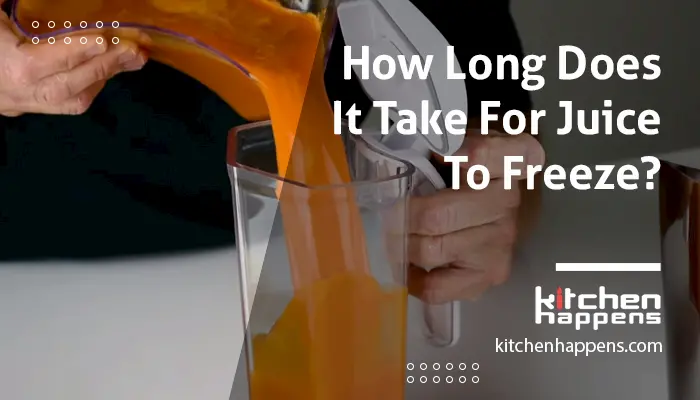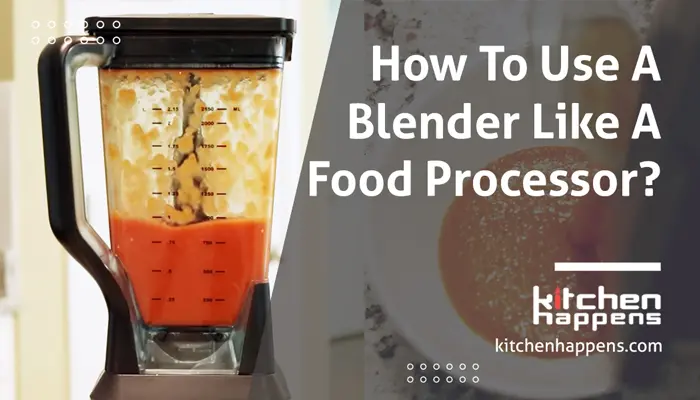Drinking a glass of cold juice is enough to keep you hydrated and refreshed.
Maybe you enjoy cold juice, especially during the summer. Therefore, it may be a good idea to refrigerate your juice earlier than usual. Have you ever wondered how long it takes for juice to freeze? The answer may surprise you.
However, on this day, we will discuss how long juice takes to freeze and more about freezing juice. Therefore, take a deep dive into our full guide to discover everything you need to know about how long does it take for juice to freeze.
At the very first let’s know why you need to freeze the juice.
Why Do You Have To Freeze Juice?
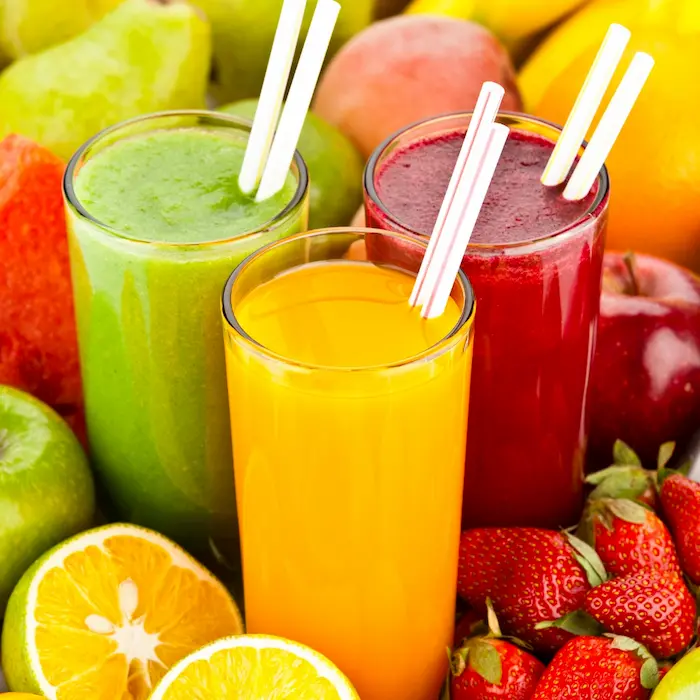
It is beneficial to freeze your juice for a variety of reasons. Keeping juice in the freezer allows you to store juice that would otherwise be wasted. Freezing juice is convenient when you don’t have time to make fresh juice or do not have the produce.
Even when it is packed correctly and used promptly, frozen juice has a high nutritional quality that makes it worth the effort.
How Long Does It Take For Juice To Freeze?
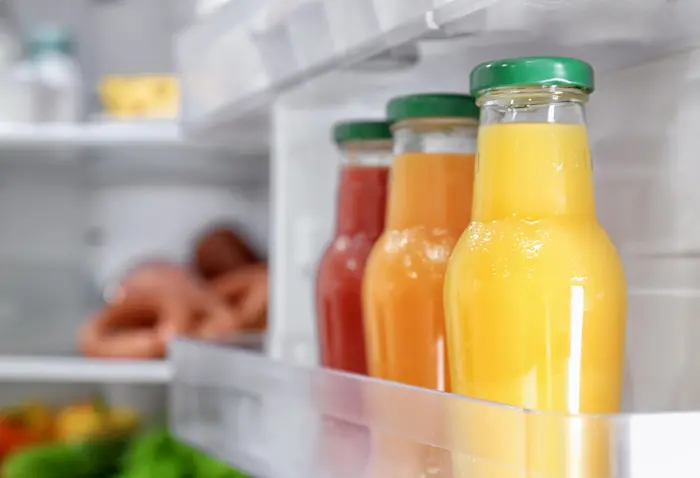
The freezing of juice takes a few minutes, just like any other liquid. It depends on the type of juice, how much is in the container, and the temperature of your freezer.
It usually takes two to four hours for the juice to freeze because certain freezers are more efficient than others. It is also important to consider the volume and container of the liquid when determining how long it takes to freeze. Also, the freezing point of the juice affects its freezing time.
It will take about half that time if you prefer a frozen treat that tastes more like a slushy. If you use fresh-squeezed orange juice, it takes even less time to freeze.
It will take two to twelve hours for orange juice to freeze. It mostly depends on the container used as to how long it takes to freeze. Depending on the container density, orange juice will freeze more quickly.
To freeze a glass bottle of frozen orange juice, for instance, it will take six hours to freeze the juice. Therefore, the higher the volume of the juice, the longer it will take to freeze.
How Long Does Juice Last In The Freezer?
If you’ve decided to freeze your juice, you’re probably wondering how long it’s going to last. Interestingly, the frozen orange juice study I mentioned earlier ran for up to 24 months, which means it can last a very long time.
Generally, I recommend leaving your juice in the freezer for three to six months. By doing so, lots of nutrition will still be present, and the food won’t have expired.
How Long Does Juice Last When Not Frozen?
It depends on the type of juicer you have. When juice is extracted from a centrifugal juicer, it lasts for about 24 hours before it spoils.
However, masticating juicers can produce juice that lasts about two to three days. They use a slower juicing process, which prevents oxidation and extends the life of the juice.
All of this assumes that the juice is stored inside a clean, airtight container inside the fridge. Masticating juicers are great if you’re making juice in batches, so you have it for a few days at a time or make juice the night before.
Again, this is true for both fruit juice and fruit and vegetable juice.
How to Freeze Fruit Juice?
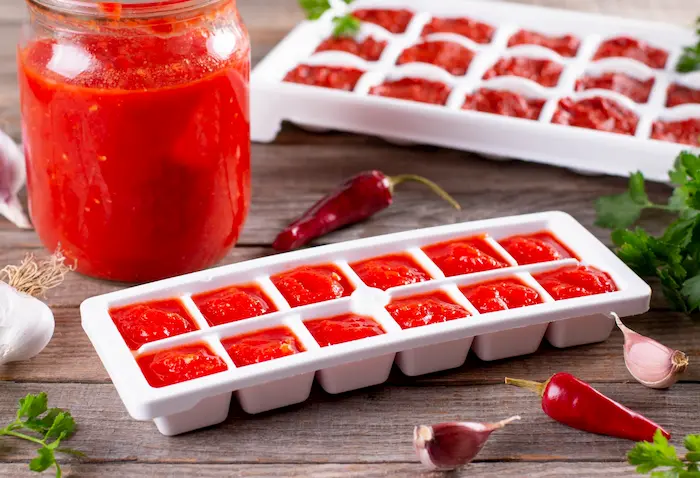
If you’re thinking about making frozen fruit juice popsicles or another type of frozen treat, plan ahead a bit. Place the popsicle molds or ice cube trays in the freezer overnight and then you’re good to go. So when you wake up in the morning, you’ll have perfectly frozen juices at your fingertips!
Here’s how you can freeze fruit juice:
- Use an ice cube tray or another container to store the fruit juice.
- Then, place the tray or container in the freezer.
- After you have frozen the fruit juice, let it sit for two to four hours, or until it has solidified.
- Take a sip of your fruit frozen juice and enjoy!
How Do I Make My Juice Freeze Quickly?
If you want to make sure your juice freezes on time, you should use a standard freezer or a smaller container that is less dense. For the same purpose, chest and upright freezers work well.
There are many factors that can affect how fast your juice freezes. This includes the container’s size and shape, the juice’s temperature, and the air in your freezer.
Let’s briefly discuss each of these factors and how they affect freezing.
#1. The Temperature of the Juice
In general, juice freezes faster when it is cold and stored in an insulated container.
This factor definitely affects the freezing time of juice; the colder the juice, the faster it freezes. In case the juice is a little warm, the freezing process will take a while longer.
#2. The Size and Shape of the Container
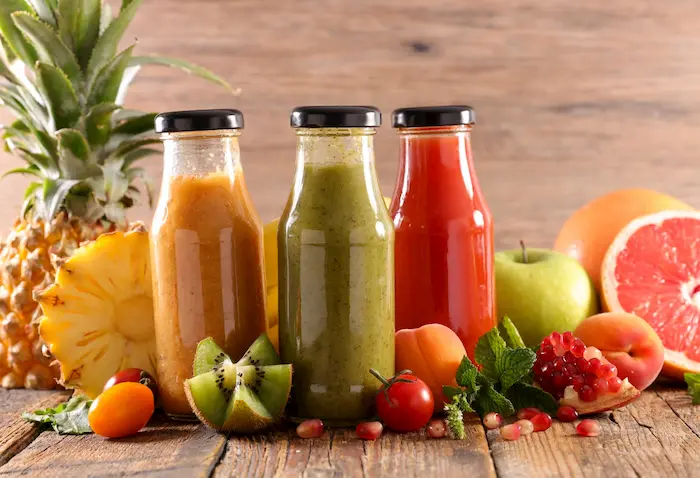
Your juice will also freeze more quickly, depending on the size of your container.
A larger container requires more cooling time to freeze since more liquid needs to be cooled down. It is also important to consider the quantity of juice in the container.
When you use a small container that is not full, it will take less time to freeze.
Moreover, if the freezer environment has low humidity, the juice will freeze faster than if it had been stored at room temperature or in a warmer environment.
#3. Tips For Freezing Juice
Choose Fresh
If you want to ensure the best taste of your juice when it’s thawed, choose the freshest and most concentrated juices. As a result, they will not lose their flavor when frozen.
Freeze ASAP
Whenever you make your own juice at home, it is best to freeze it immediately.
Make Popsicles
Use a popsicle or ice cream maker to make delicious, healthy ice lollies this summer by filling them with fruit juice.
What Temperature Does Fruit Juice Freeze At?
According to the primary constituent ingredients, different juices freeze at different temperatures.
Here are a few examples of fruit juices that freeze at various temperatures.
| Fruit juice | Freezing temperatures |
| Orange juice | 15-35 degrees Fahrenheit |
| Apple juice | 17.6 degrees Fahrenheit |
| Pineapple juice | 28 degrees Fahrenheit |
| Grape juice | 25.94 degrees Fahrenheit |
What Happens When You Freeze Juice?
When you freeze juice, it actually changes its consistency. It is more common for frozen juice to have ice crystals than liquid juice. As a result, the texture becomes thicker and less fluid. This also means that the juice will contain more air bubbles.
Having these air bubbles in your juice can cause problems with its taste and flavor. These air bubbles, however, do not affect the nutritional value of your juice.
When juice is frozen, its nutritional content remains the same. The nutrient levels remain at 100% (or close to it) after being frozen, although the amount of nutrients may decrease slightly.
If the texture changes, you won’t lose any of the benefits of the juice. It’s still the best way to get nutritious foods into your diet with frozen juice.
How To Make Sure Your Juice Is Not Damaged By Freezing?
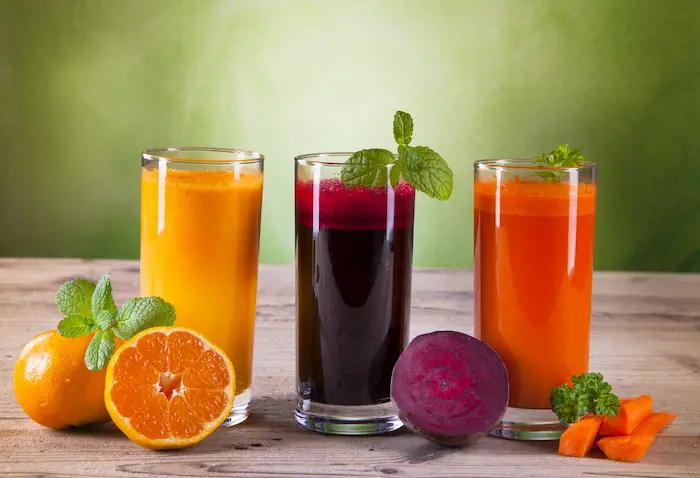
To avoid your juice being damaged by freezing, you can take several measures. The following tips will help you:
- Prepare your juice with cold water. The cold water will help prevent your juice from losing nutrients due to heat.
- Keep your bottles tightly sealed. Leaving moisture out of the juice bottle could lead to mold growth on your juice if you do so.
- Don’t overfill your bottles if you want to keep them in good condition. Adding too much juice to your container will lead to oxidation and spoilage.
- Keep your juice in a refrigerator. Your juice will stay fresher for longer if you keep it refrigerated to slow down the oxidation and spoilage process.
- Do not expose your juice to direct sunlight. Your juice loses vitamin C when it is exposed to sunlight.
- Before opening your bottles, shake them thoroughly. By doing this, you reduce the risk of oxygen entering your juice containers.
- Do not store your juice in plastic bags or other non-food-safe containers.
Does Freezing Juice Destroy Nutrients?
Does freezing juice destroy nutrients? This is a common question. It’s definitely a good option to have frozen juice on hand for those on a busy schedule. When you’re making lots of juice, freezing it is one of the best options.
If you freeze juice in a high-speed blender like a Vitamix blender, you probably won’t lose any nutrients. However, if you use a low-speed blender like a food processor, you might lose some nutrients due to the heat.
You could also run into problems with overheating if you blend too long. Your juice can be destroyed if you overheat it. You’ll end up cooking your ingredients and ruining their vitamins and minerals.
How To Make Sure That Your Nutrients Are Not Lost In Freezing Juice?
First of all, keep in mind that even though the juice may appear thick and icy, it still maintains its nutritional value. It doesn’t mean you should throw your blender away just because you freeze your juice!
If you are concerned about losing nutrients, strain your juice through a cheesecloth or a nut milk bag before freezing. Using this method, you’ll remove most of the pulp from the juice, which has a lot of fiber and nutrients.
The next thing to keep in mind is that your juice won’t be completely smooth after it has been frozen. Juices tend to thicken up quite a bit when frozen. This isn’t an issue since you can always blend it back down again once it’s defrosted.
You might think adding ice cubes will make your juice thinner, but that’s a myth. You won’t notice a difference in the overall thickness of your juice if you melt your ice cubes slowly.
Closing Words
Finally, you get a clear answer on How Long Does It Take For Juice To Freeze. However, freezing juice is an excellent method for preserving the drink. You’ll need to remember a few key things when you do so, though.
Make sure you use fresh fruits and avoid adding water or other liquids. Additionally, make sure the container you use is airtight and free of moisture. If you follow these simple tips, you’ll be able to enjoy delicious frozen juice every time!
Frequently Asked Questions
How Long Does Orange Juice Take To Freeze?
If you’re talking about store-bought, pasteurized orange juice in a cardboard container:
You will need to wait about two hours for your orange juice to freeze solid. If you’re looking for something more like a slushy, it will be ready in about half that time. Using freshly squeezed orange juice will make freezing even faster – around an hour.
How Long Does It Take For Juice To Turn Into Slush?
The process of turning juice into slush takes about 45 minutes. By adding sugar and freezing the mixture, this process is sped up. Sugar lowers the freezing point of liquids, causing them to freeze faster.
How Long Does It Take To Freeze Juice Cubes?
To freeze juice cubes, you need two hours. It depends on what type of juicer you use and how full the tray is. Within two hours, your juice cubes should be frozen if you’re using a regular ice cube tray.
Does Fruit Juice Go Bad in the Freezer?
When you freeze juice, you do not have to worry about the quality, flavor, or nutritional content degrading for up to six months. You can, however, expect your juice to stay fresh for a very long time.

